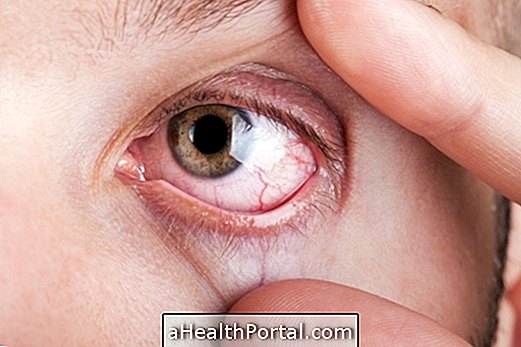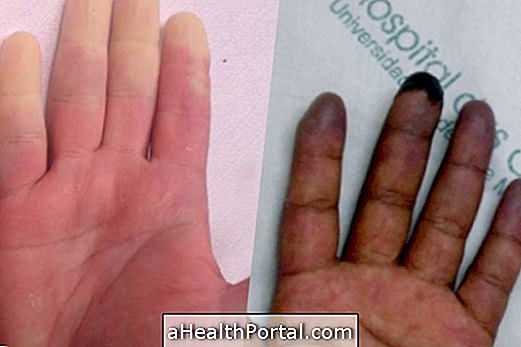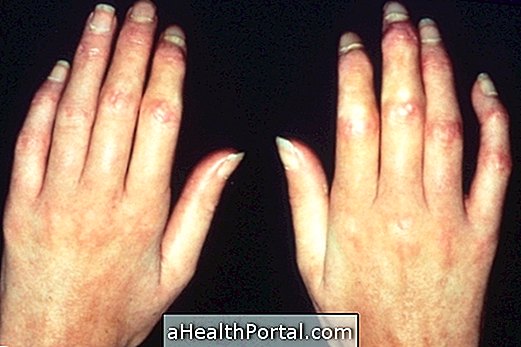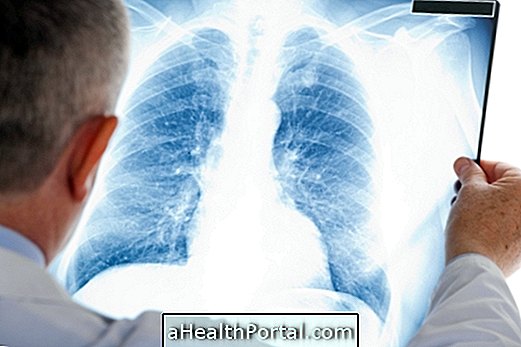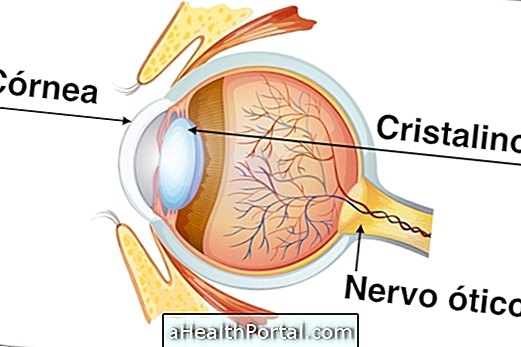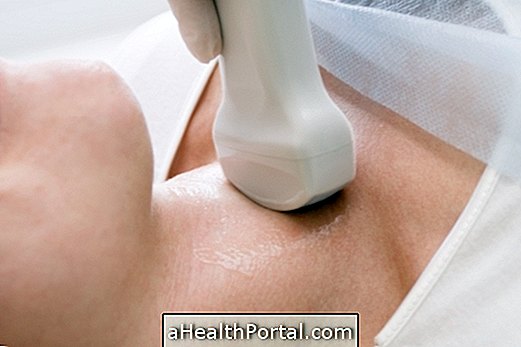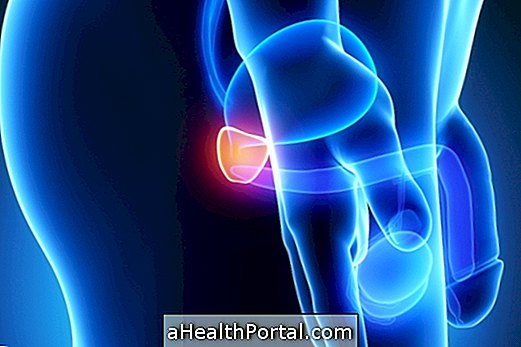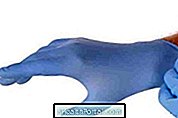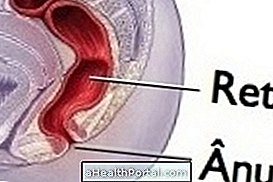Sjögren's syndrome is a chronic and autoimmune rheumatic disease, characterized by inflammation of some glands in the body, such as the mouth and eyes, which results in symptoms such as dry mouth and a feeling of sand in the eyes, in addition to increased risk infections such as cavities and conjunctivitis.
Sjögren's syndrome can present itself in 2 ways:
- Primary: when presented in isolation, due to changes in immunity;
- Secondary: when it appears in association with other autoimmune diseases, such as rheumatoid arthritis, lupus, scleroderma, vasculitis, or with chronic hepatitis.
This disease, although not curable, has a benign evolution, and develops over many years, and there are also treatment options to relieve symptoms and improve the person's quality of life, such as eye drops and artificial saliva.

Main symptoms
In Sjögren's syndrome there is a dysregulation of the person's immunity, which causes inflammation and self-destruction of glands, especially salivary and lacrimal glands. In this way, these glands are unable to produce secretions, and symptoms such as:
- Dry mouth, known as xerostomia;
- Difficulty swallowing dry food;
- Difficulty speaking for a long time;
- Stomach ache;
- Dry eyes;
- Feeling of sand in the eyes and redness;
- Eyestrain;
- Sensitivity to light;
- Risk of corneal ulcerations;
- Increased risk of infections such as cavities, gingivitis and conjunctivitis;
- Dry skin and dryness of the mucosa of the private parts.
This syndrome is more common in young women, but it can happen in people of all ages. In some cases, the first symptoms appear in pregnancy, as this is a period when hormonal changes and emotional stimuli can exacerbate this type of disease.
Other types of symptoms
In more rare situations, this syndrome can cause signs and symptoms that are not related to the glands, called extraglandular manifestations. Some are:
- Joint and body pain;
- Tiredness and weakness;
- Dry cough;
- Changes in the skin, such as hives, bruises, skin wounds and changes in sensitivity.
In addition, Sjögren's syndrome can cause neurological symptoms, being a more severe type of manifestation, which can present loss of strength in a body location, changes in sensitivity, convulsions and difficulties in movement.
Although uncommon, people with Sjögren's syndrome may also have an increased chance of developing lymphoma, which can happen in more advanced stages of the disease.

How to confirm the diagnosis
The diagnosis of Sjögren's syndrome is made by the rheumatologist, who evaluates the symptoms, makes a physical examination of the glands and can request tests as markers of immunity, called anti-Ro / SSA, anti-La / SSB and FAN.
A biopsy of the lip may be requested to confirm when there is doubt of the diagnosis or to assess the presence of other factors that may cause symptoms similar to this syndrome, such as viral infections, diabetes, use of some medications or psychological causes, for example. Check out what may be the other causes of dry mouth and how to fight it.
In addition, it is also important to research the existence of Hepatitis C, as this infection can cause symptoms very similar to those of Sjögren's syndrome.
How to treat
Treatment for Sjögren's syndrome is done mainly to control symptoms, using lubricating eye drops and artificial saliva, as well as medicines such as anti-inflammatories, corticosteroids or hydroxychloroquine, for example, to reduce inflammation, prescribed by the rheumatologist.
Other natural alternatives include chewing sugarless gum, drinking water with drops of lemon or chamomile tea and consuming foods rich in omega 3, such as fish, olive oil and flaxseed oil. Find out more details on how to treat Sjögren's syndrome.
Was this information helpful?
Yes No
Your opinion is important! Write here how we can improve our text:
Any questions? Click here to be answered.
Email in which you want to receive a reply:
Check the confirmation email we sent you.
Your name:
Reason for visit:
--- Choose your reason --- DiseaseLive betterHelp another personGain knowledge
Are you a health professional?
NoMedicalPharmaceuticalsNurseNutritionistBiomedicalPhysiotherapistBeauticianOther
